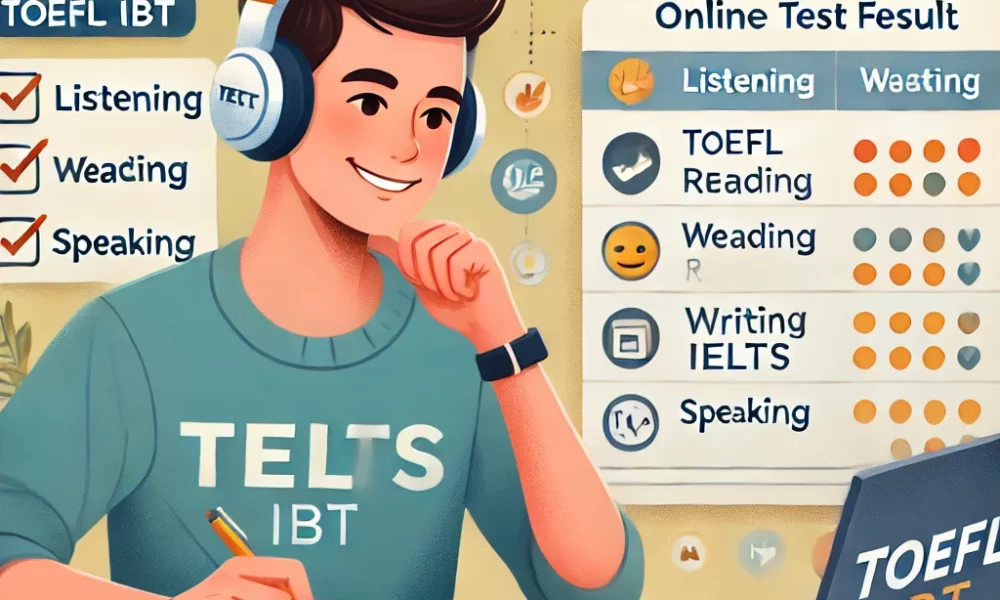
IELTS vs. TOEFL: Which English Proficiency Test is Right for You?
Planning to study abroad? One of the first steps is proving that you can understand and communicate in English. The two most common tests used to measure this are IELTS (International English Language Testing System) and TOEFL (Test of English as a Foreign Language). Both tests check your English skills in reading, writing, speaking, and listening, but they do it in different ways. Let’s break it down!
What are IELTS and TOEFL?
Both IELTS and TOEFL measure how well you can use English for studying at a university level. IELTS is more popular in the UK, Australia, and Canada, while TOEFL is commonly accepted in the US. Understanding these tests will help you pick the best one for your study plans.
Test Format: How Are the Tests Structured?
The test format is where things get interesting!
IELTS Test Format: Available in paper-based and computer-based formats, the IELTS includes four sections: Listening, Reading, Writing, and Speaking. The big difference? The Speaking test is face-to-face with an examiner!
TOEFL Test Format: TOEFL is mostly internet-based (TOEFL iBT), with some paper-based options. Like IELTS, it has four sections. The main difference? The Speaking test is done through recorded responses, not face-to-face.
IELTS takes about 2 hours and 45 minutes, while TOEFL is a little longer at 3 hours.
Question Types: What Kind of Questions Can You Expect?
Here’s where the tests get a little different:
IELTS Question Types: Expect short-answer and essay-style questions. You’ll be asked to express yourself in both writing and speaking. There’s also a mix of multiple-choice questions.
TOEFL Question Types: This test loves multiple-choice questions! For each section, you’ll choose your answers from options. The Writing section still requires essays, but the Speaking part? You’ll record your responses.
If you like variety, IELTS might be your match. If you love straightforward multiple-choice, TOEFL could be a better fit!
Scoring System: How are the Tests Graded?
Scoring is pretty simple:
IELTS: Scores are given on a band system, from 0 to 9. Each section gets its own score, and you’ll have an overall score too.
TOEFL: Scores are given on a scale of 0 to 120, with 30 points per section. A higher score is always better, but universities often have a minimum requirement.
Higher scores mean you’re on top of your English game!
Speaking Test: How is Speaking Tested?
Let’s talk about the Speaking test!
IELTS Speaking Test: You’ll talk face-to-face with an examiner in a real conversation. This is great for people who are comfortable speaking with others. It’s also the shortest part of the test, lasting 11-14 minutes.
TOEFL Speaking Test: Here, you’ll record your answers instead of talking directly to an examiner. The responses are then scored by examiners later, so it’s a bit less personal.
If you like speaking with a real person, IELTS could be the way to go. If you’re more comfortable with a recorded test, TOEFL might suit you better.
Test Availability and Cost: Where and How Much?
Both tests are available in many countries around the world, but the cost and availability can vary:
IELTS Availability and Cost: Conducted by the British Council, IDP, and Cambridge Assessment English, IELTS is widely available, especially in countries like the UK, Australia, and Canada. The cost usually ranges from $180 to $250.
TOEFL Availability and Cost: Managed by ETS, TOEFL is more common in the United States but is accepted globally. The fee for TOEFL also ranges between $180 to $250.
So, whether you’re taking IELTS or TOEFL, expect to pay roughly the same.
Which Test Should You Take?
Wondering which test is best for you? Let’s make it easier:
Take IELTS if:
You prefer a face-to-face speaking test with an examiner.
You’re comfortable with a variety of question types, including essays and short answers.
You’re heading to the UK, Australia, or Canada.
Take TOEFL if:
You prefer multiple-choice questions.
You’re more comfortable with a computer-based test.
You plan to study in the United States.

Tips to Prepare for IELTS and TOEFL
Preparation is key! Here’s how to get ready:
Improve Your English: Read books, watch TV shows, and listen to English podcasts. The more you surround yourself with the language, the better you’ll do.
Take Practice Tests: These help you get used to the test format and timing. They’ll also highlight your weak areas.
Study Smart: Focus on your weaknesses—whether it’s listening, writing, or speaking—and spend extra time practicing those areas.
Get Help: Consider joining a test prep course or using online resources to practice. Having guidance can make a big difference.
Fun Fact!
Did you know that over 11,000 universities and institutions around the world accept IELTS and TOEFL scores? So no matter where you plan to study, these tests will likely be accepted!

Additional Considerations
- Work Placement: Many courses incorporate mandatory work placements, providing invaluable real-world experience in Australian hospitality settings.
- Financial Planning: Beyond tuition, students should budget for additional expenses such as application fees, materials, and living costs.
- Visa Requirements: International students must ensure they meet Australian visa requirements, which may include English language proficiency and financial capacity.
Conclusion: The Final Verdict
Both IELTS and TOEFL are accepted by universities worldwide, but the right test depends on your personal preferences and goals. Whether you like face-to-face interaction or prefer computer-based testing, the key is choosing the test that best suits your needs. Before you choose, always check your university’s requirements to make sure you’re taking the right test.
With the right preparation and understanding of each test’s format, you’ll be ready to take your English skills to the next level and achieve your dreams of studying abroad!
Still unsure which test is right for you? Contact Universal Academic & Migration Consultants for expert guidance and support in making the best decision for your future. Our team can help you with everything from test preparation to choosing the right university, ensuring a smooth and successful journey to studying abroad.



